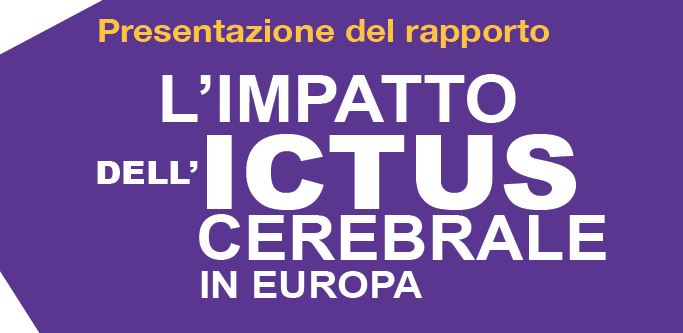
Oct 20, 2017
The Osservatorio Ictus Italia, in collaboration with S.A.F.E. – Stroke Alliance for Europe and with the support of Member of European Parliament, Mr Aldo Patriciello, presented on 17th October 2017 in Rome the Italian translation of the “Burden of Stroke in Europe“, a study done by researchers at King’s College London which presents an in-depth analysis of the state of awareness, information and prevention of this health emergency, care offer, rehabilitation, support and social integration and, in general, the lives of European citizens affected by stroke.

The study, commissioned to researchers at King’s College in London by Stroke Alliance for Europe, looked at data, documents and information from 35 European countries, including Italy, noting significant differences between different care models and disparities in the possibilities of access to therapies. (more…)

Oct 18, 2017
For this year’s World Stroke Day, on 29th October, Blëtz a.s.b.l, a stroke support organisation from Luxembourg organised a conference “I am no longer myself” – When the handicap is invisible – approach to stroke from the neuropsychology perspective.
The event was organised under the patronage of HRH Madam Grand Duchess, Heiress Stéphanie, Mr. Burgomaster of the Commune of Bettembourg, Dr. Jean-Claude Schmit, Director of Health and Dr. Monique Reiff, CHL neurologist.
This conference took place on Sunday, 29th October at 16.00 hours at Château de Bettembourg, in Luxembourg.
At the same time, there was a presentation of the book “You have to be a fighter! Life after a stroke“ by Chantal Keller. (more…)

Oct 17, 2017
At a recently held event in EU Parliament, Geography matters: Inequalities in Access to Stroke Care and Innovation a stroke survivor from Belgium shared his story with the auditorium. He agreed to share it also here, so more people could see his testimony.
“My name is Marc van Dorst.
I live in Wilrijk, a suburb of the beautiful city of Antwerp.
I am 62 years old, happily married and a proud father of 4 children. (more…)

Oct 16, 2017
A new University of Liverpool study, published today in Brain and Behaviour, examines the wide range of visual impairments developed by stroke survivors.
Approximately 65% of acute stroke survivors have visual impairment which typically relates to impaired central or peripheral vision, eye movement abnormalities, or visual perceptual defects. (more…)

Oct 16, 2017
Ischemic stroke patients who do not receive intravelous (IV) alteplase, a clot-dissolving medication, are significantly less likely to survive, according to researchers at Georgia State University.
Ischemic stroke is the most common type of stroke. It occurs when a vessel that supplies oxygen-rich blood to the brain becomes blocked, often by a blood clot. IV alteplase was approved by the Food and Drug Administration as a treatment for acute ischemic stroke in 1996 and is known to reduce disability and improve functionality by restoring blood flow to the brain. Yet two decades later, less than 10 percent of patients receive the treatment. (more…)

Oct 10, 2017
A debate on stroke is emerging in Brussels for the first time, thanks to the joint mobilisation of physicians’ association ESO and the patients’ association Stroke Alliance for Europe – SAFE over the past year. This mobilisation started off with a joint letter sent on November 2016, calling on the European Commission to play a greater role in ensuring access to the current stroke management standards and facilitating cross-border cooperation between member states.
In order to preserve this momentum and garner political support, ESO and MEP Aldo Patriciello have decided to organise an event within the European Parliament, focusing on innovation in stroke treatment and access to it. The primary objective was to bring together representatives from ESO and the EU institutions, physicians and patients with the aim of discussing how to ensure equal access to the current stroke management standards and reduce inequalities within Europe along the whole patient’s care pathway. (more…)







